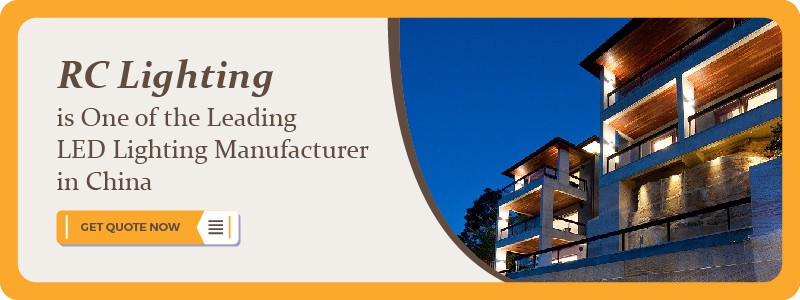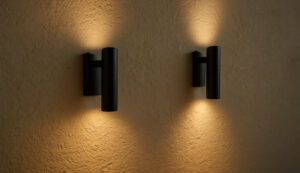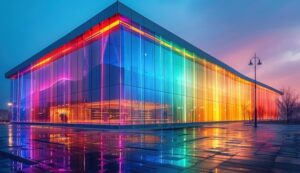What are Vapor Proof Lights?
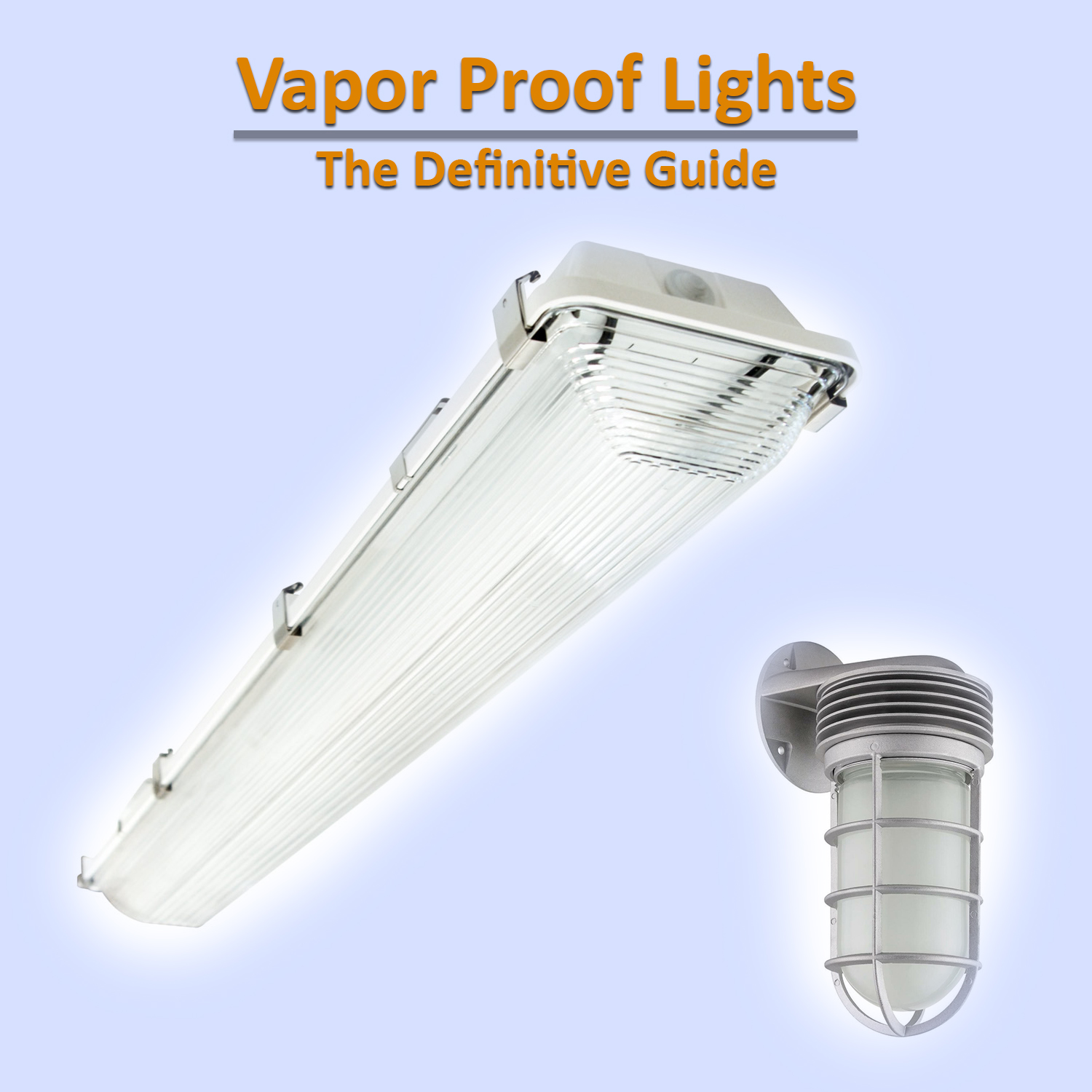
Vapor-proof lights are designed lighting fixtures wholly sealed from dust, water, and moisture (vapor). Since humid environments can result in moisture sneaking into the light fixture. To protect the sensitive internal electronics from corrosion, the outer casing of vapor-proof light fixtures is sealed tight using gaskets and adhesives.
A lighting fixture comprises an LED (light emitting diode) element, an outer casing, and some electronics. Fixtures, also known as Luminaires, refer to a complete lighting unit. Typical examples include lamps, LED light strips, bollard lights, etc.
As vapor-proof light fixtures are commonly used in industrial applications, they come in very few designs and shapes. The two most common form factors for vapor lights are a small wall-mounted sconce design and a long ceiling-mounted bar.
Why are Vapor Proof Lights so Important?
To understand the importance of vapor-proof lights, you must first understand vapor permeability.
Vapor Permeability
Permeability is the property of a substance to pass through a specific region. For a light fixture, the specific region consists of joints in the outer casing, mounting holes, and other small gaps. Vapor permeability refers to a light fixture’s ability to resist the flow of water vapor through it.
Water tends to clump together and form a larger body of water. On a microscopic scale, liquid water is considered bulky and cannot pass through most tight spaces. However, unlike liquid water, the vapor is gaseous and can move through the tiniest spaces. So even if you have a water-tight light fixture, it still would be susceptible to vapor penetration.
Vapors are quite common in large industrial areas and environments with high humidity. In either case, moisture can seep into a light fixture and slowly corrode it from the inside. The only practical means of avoiding vapor damage are high-quality and low permeability gaskets.
Marketing Terms for Vapor Proof Lighting
The terminology surrounding vapor-proof lighting can be pretty confusing. Here are a few standard terms that are used in conjunction with vapor-proof.
Vapor Tight LED Lights
Vapor-proof lighting fixtures are often labeled as vapor tight lights in the commercial sector. These two terms are used interchangeably and have no practical difference between them.
Water-Tight LED Lights
Another common marketing term for vapor-proof lights is water-tight or waterproof light fixtures. This is a deceptive practice used by unreliable suppliers to mislead customers.
Water-Tight vs. Vapor-Tight
Watertight and vapor-tight equipment have different requirements for certification. As such, a water-tight light fixture is not necessarily safe from vapor damage. The last thing you would want is to spend a significant amount of capital only to realize you bought the wrong type of light fixtures.
LED Tri-Proof Light
You may also see vapor-proof lighting marketed as LED tri-proof light. As these LED lights are dust, water, and corrosion-proof, companies try to combine them under attractive marketing terms.
A convenient method to sift through all the misleading marketing terms is to use IP ratings.
What is an IP Rating?
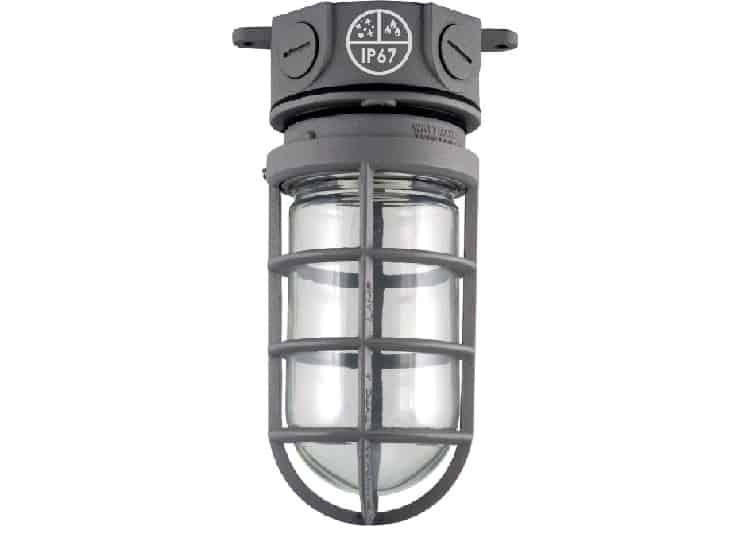
IP or Ingress Protection rating is a set of standardized tests that determine an electronic device’s water and dust proofing. A typical IP rating is written as IP65, where the first digit represents dust proofing capabilities while the second one represents waterproofing.
Dust Proofing
IP rating ranges from 0, meaning the product has zero dust protection, to 6, meaning the product is completely dustproof. An X is sometimes used here to signify that the product was not submitted for dust protection testing.
Water Proofing
IP rating ranges from 0, meaning the product has no water protection, to 9, meaning the product is waterproof even under high-pressure water sprays. An X here would mean the product was not tested for water protection.
The required IP rating for vapor-proof lighting fixtures varies based on applications. But generally speaking, your vapor tight lights should always have a dust protection rating of 6 and a water protection rating of 5 or more.
IP65
This is the minimum IP rating for vapor-proof lighting fixtures. It protects from dust and debris and can withstand a small jet of water for 1-3 minutes.
IP67
This is a generally recommended rating for vapor lights. It also has complete dust protection, but more importantly, IP67 devices can withstand submersion in water up to 3ft. deep for 30 minutes.
IP69
This is the maximum possible rating achieved by a LED vapor light. To qualify for an IP69 rating, a device must withstand high-pressure water jets from a closeup range.
08 Most Useful Applications for Vapor Proof Lighting
Vapor-proof lights are most common in industrial lighting setups, such as factories and chemical processing plants. However, over the past few decades, several other industries have started to utilize these lights. The following are a few of the most common applications for vapor-proof lighting.
1 – Car Wash Lighting
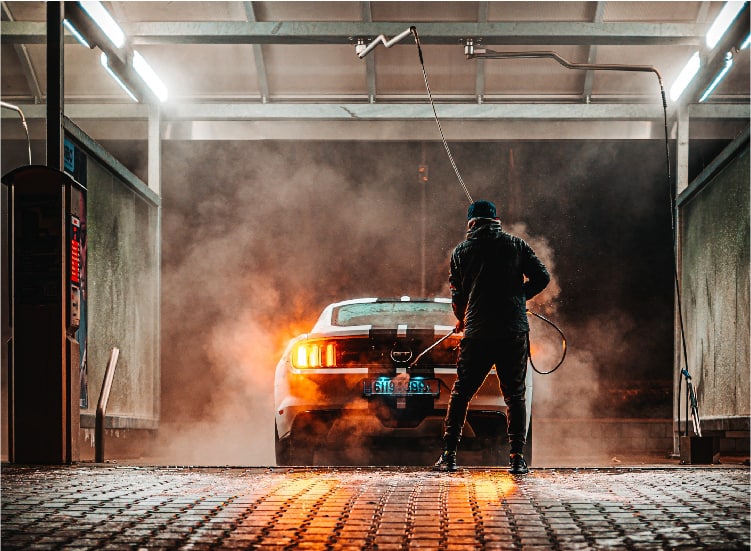
Car washes are by far the most common example of vapor-proof lighting. Traditional lighting is non-applicable to car washes as constant water splashes and humidity can build up thermal stress. LED lighting fixtures are the only viable option for water-rich and humid environments.
Vapor lights are designed to deal with such extreme environments and are widely used in car washes across the globe.
2 – Refrigeration Areas
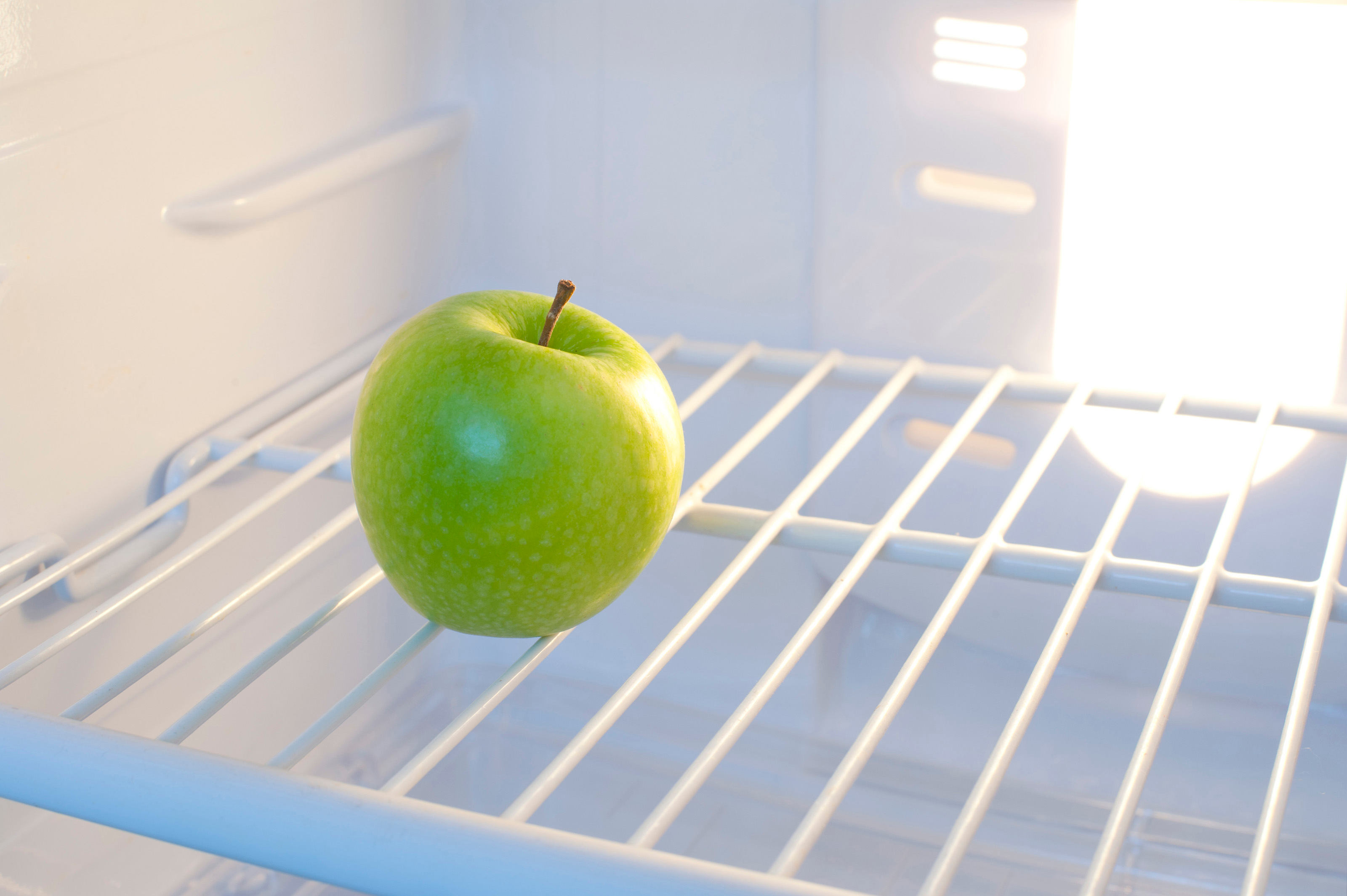
Cold environments pull moisture from the environment and cause condensation on nearby flat surfaces. Whether it is large commercial walk-in refrigeration rooms or small freezers in your home, both require specialized vapor-proof light fixtures.
Older incandescent bulbs can withstand the colder environments of refrigerators. But high humidity will eventually lead to corrosion on the electrical contacts.
3 – Swimming Pools
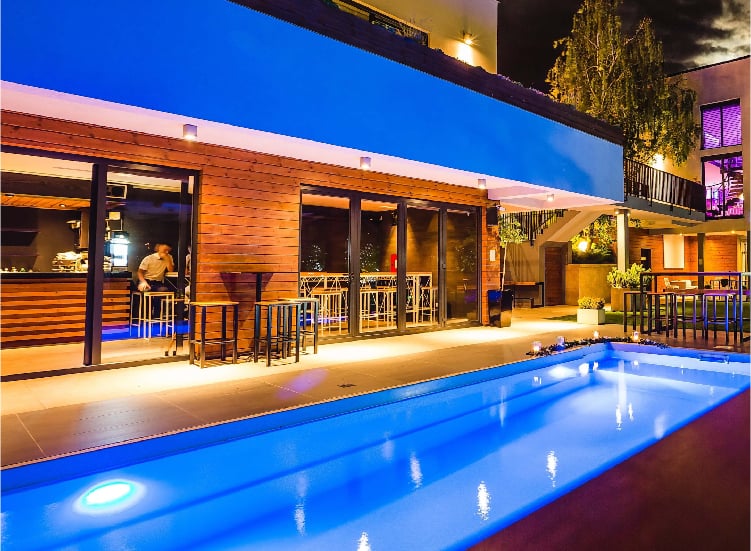
You have the option of using underwater LED lights for your swimming pools. These lights are designed to withstand the intense pressure of a total pool of water. But another lighting area for swimming pools is perimeter lighting for the pool area. These external lights are placed near swimming pools, where they experience constant humidity and occasional water splashes.
Vapor flood lights are a good option for outdoor lighting for swimming pools.
4 – Spas, Saunas, and Resorts
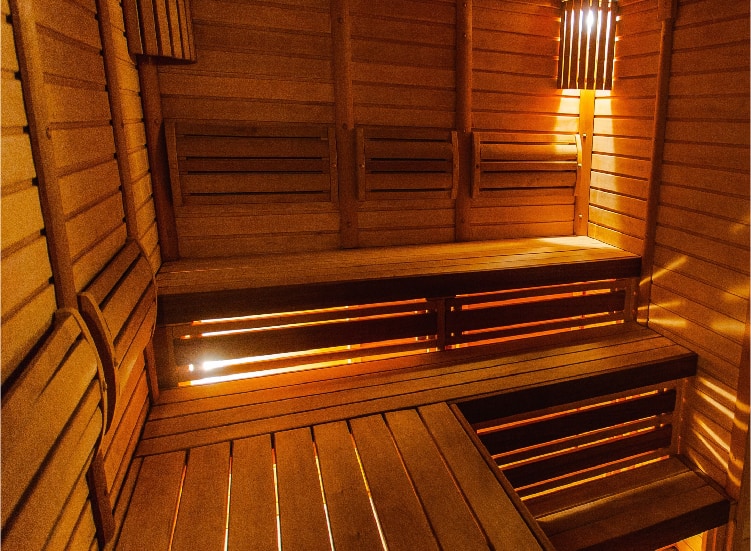
Resorts are often situated near oceans and lakes for the excellent view. But that beautiful view comes at the cost of constant humidity. Pair the naturally humid atmosphere with relaxation amenities like spas or saunas and you get a dangerous situation for electronics.
Luckily, most vapor-proof lights are capable of withstanding a spa’s high moisture atmosphere and the high-temperature vapors of a sauna. Saunas, in particular, will benefit from a high IP rating. IP65 fulfills the bare minimum requirement. But going to IP67 should yield better results over the years.
5 – Water Filtration Plants
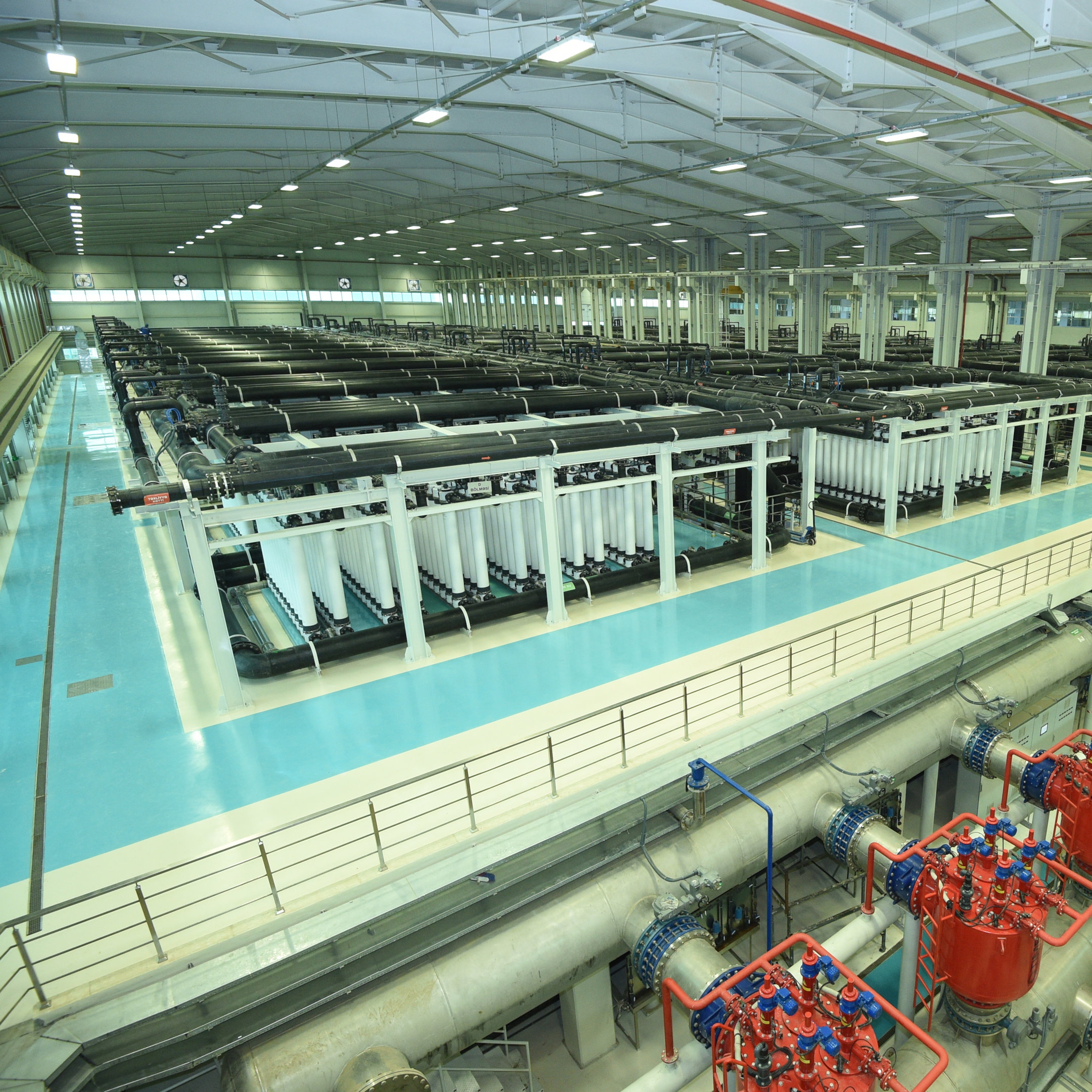
Water processing plants have a high risk of rust and water damage. All parts that come in direct contact with water are either plated with a protective metal or insulated from the outside. Lighting fixtures are often neglected in such industries as they typically don’t come in direct contact with the liquid.
But over time, you will notice a slow build-up of moisture inside the LED lighting fixtures. Proper precautions can help avoid catastrophic failures down the line.
6 – Chemical Processing Plants
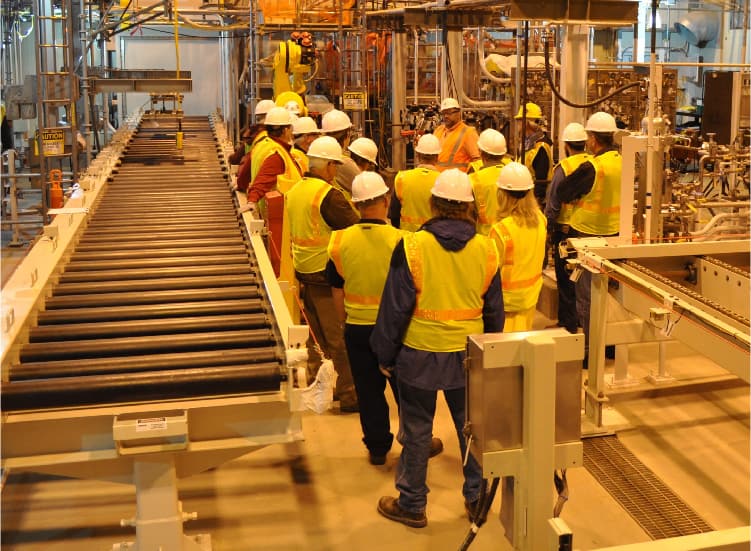
Gaskets and sealants used in vapor-tight LED lighting are often susceptible to chemical corrosion. Oils, fuels, acids, or alkalis can degrade the rubber gaskets damaging the overall product seal.
Chemical processing plants produce water vapors that carry trace amounts of harmful chemicals. When selecting vapor LED lighting for your factory, ask the supplier about the sealants used in fixtures.
7 – Marine Applications

It should be no surprise that vapor LED lighting is commonly used in marine applications. Water vessels, in particular, are filled with small wall lights. These lights can be retrofitted using a vapor-proof kit or replaced with a vapor-proof light fixture.
8 – Mining Applications
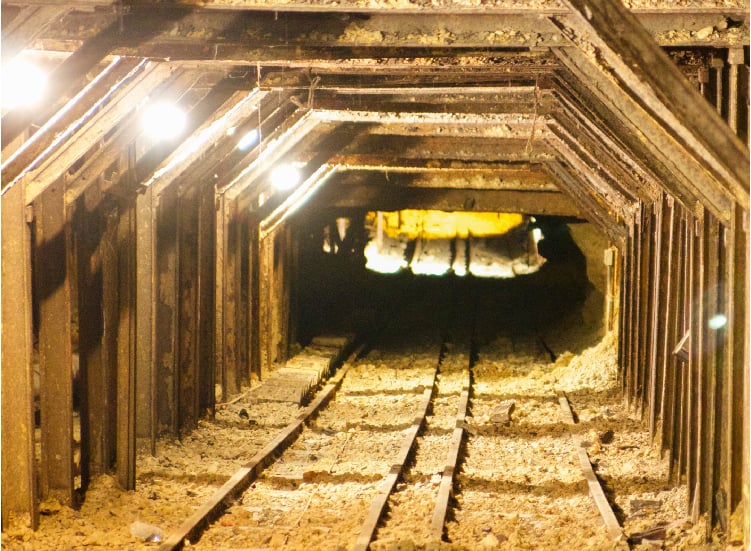
Mining takes place under harsh environmental conditions that can quickly deal some severe damage to electrical equipment. Traditional incandescent bulbs are too fragile for such environments. Modern LED technology has come a long way, and vapor-proof LED lighting has become the dominant option for mining operations nowadays.
Vapor-proof LED lights are safe from the constant flow of dust and debris, all while managing a high level of water resistance.
05 Incredible Benefits of Vapor Proof LED Lights
Vapor-proof LED lights provide several benefits over traditional lighting sources and even LED commercial lighting systems. Industrial applications value high performance over initial costs. As such, manufacturers of LED lights put a lot of care and effort into designing the best lighting solution.
Our top five picks for the benefits of vapor-proof LED lights are the following.
1 – Increased Durability and Protection
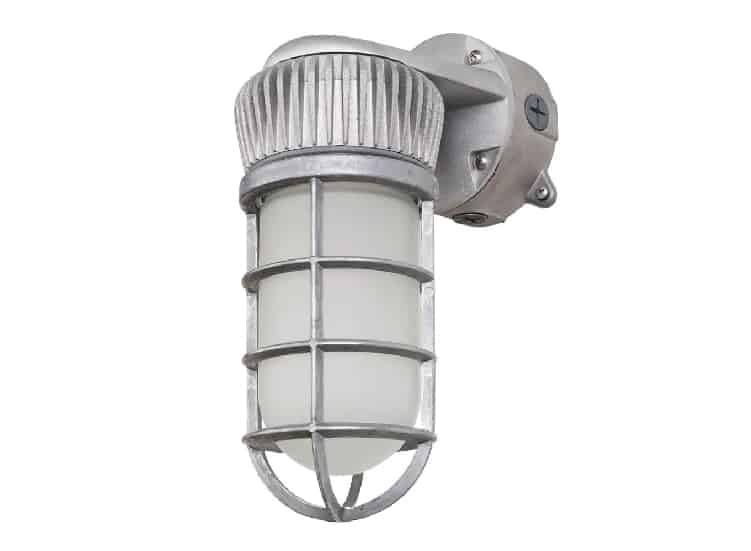
LED technology is already quite robust and durable. Their compact and lightweight design allows them to withstand most mechanical damage. But vapor LED lights further improve on this durability with more robust casings.
To maintain a vapor-tight seal, the light fixture must have a sturdy outer casing that won’t warp or flex. Even slight deformations in the fixture can lead to a compromised seal. As discussed, there are retrofit options for traditional lighting, incandescent bulbs, and fluorescent lights.
Vapor-proof retrofit kits act as external housing for existing lights and provide a similar level of dust and vapor protection. However, these kits must be designed to fit existing lighting fixtures and are more costly than regular vapor-proof LED lights.
Retrofit kits are used in situations with limited mounting options, such as the hull of a submarine. These kits are designed to accommodate older technology and are never used for modern LED Light bulbs.
2 – Energy Efficient Lighting Systems
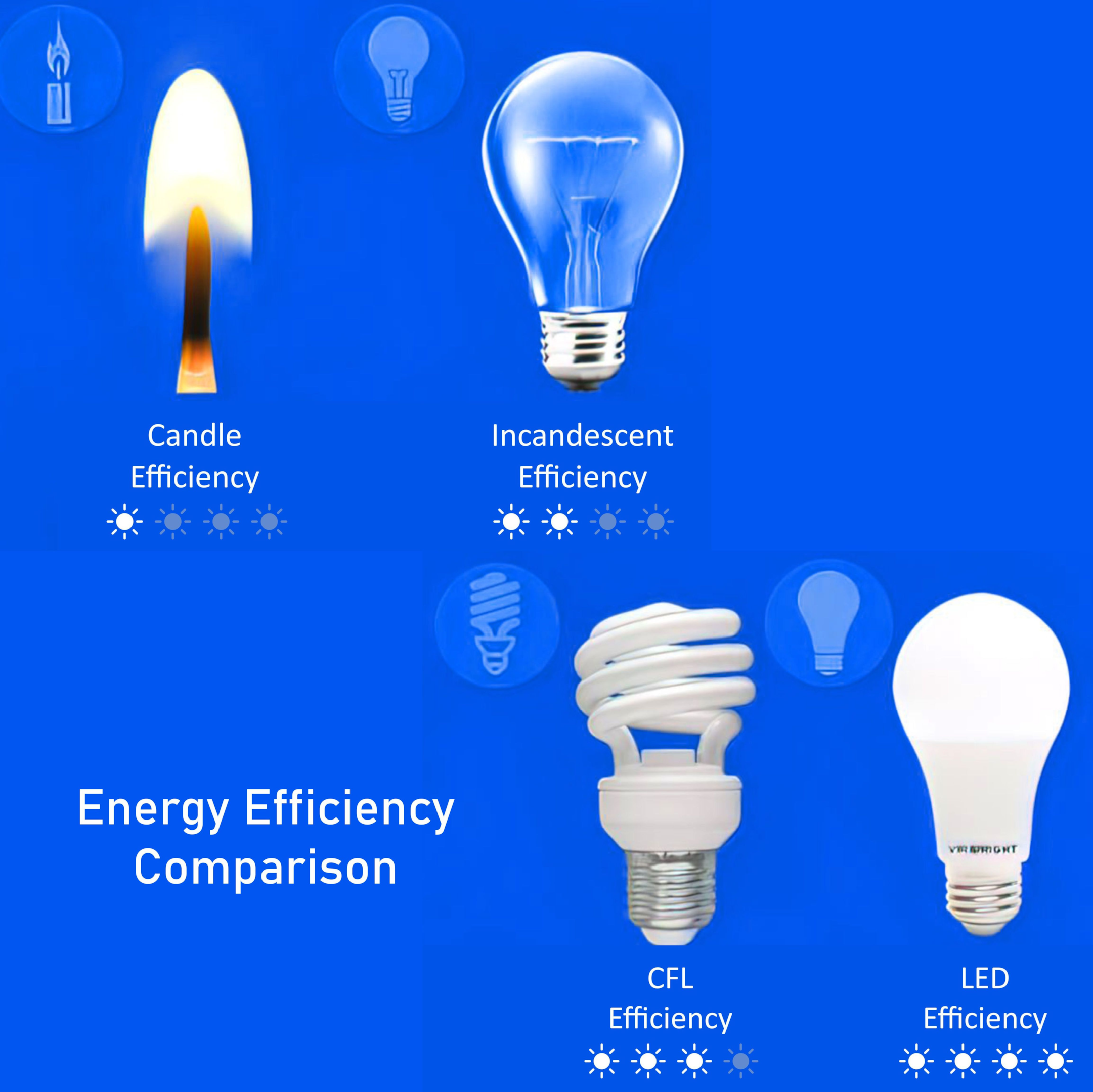
The efficiency of LED lights can never be understated. Large spaces often use several hundred lighting fixtures for full area coverage. Good energy efficiency here can lead to significant savings in electricity bills.
Vapor-proof lighting works best with efficient LED lights. Older technology like fluorescent tubes produces too much heat and can occasionally melt the gaskets. Another reason why retrofit kits are a less ideal solution.
Energy-efficient lighting may not be a top priority for small businesses, but LED lights are a necessary investment on a larger scale.
3 – Evenly Diffused Light Output
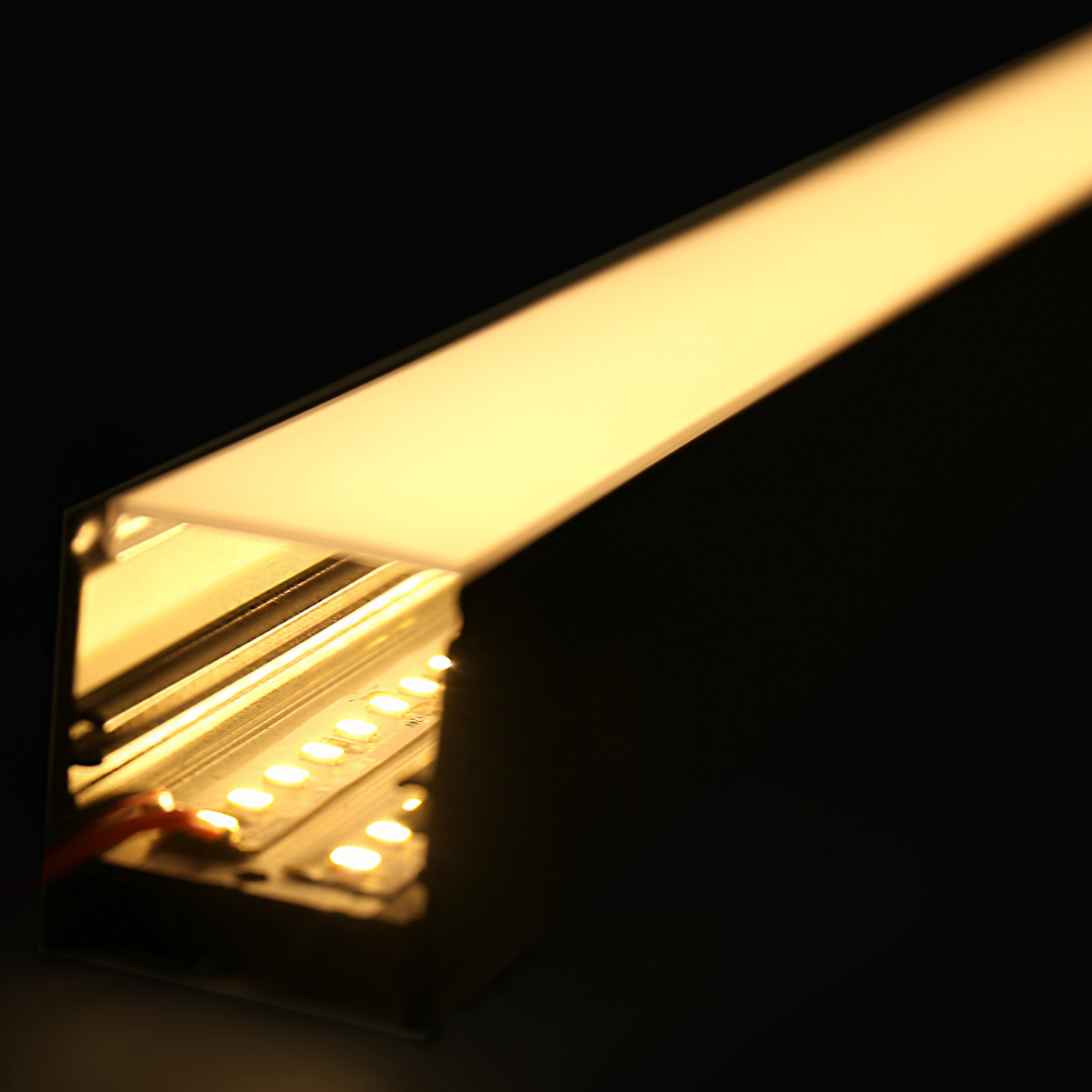
Vapor-proof LED lights come with a natural diffusion layer. LED bulbs have several advantages, but one of their shortcomings is sharp glares. Since an LED produces so much bright light from a single spot, it produces a harsh glare for close-by objects.
The only means of dealing with glares is to use a diffusion later close to the light output. The sealant layers of vapor-proof LED lights act as a natural diffuser spreading the light over a more considerable distance. Diffused lighting is more pleasing to the human eye and is particularly useful in confined spaces.
Un-diffused light output also produces sharp shadows that can negatively impact visual clarity. There are very few applications where you will not need diffused lighting.
4 – Reduced Maintenance Costs

Electronics of all types and sizes require regular maintenance. Large corporations have annual mandated equipment maintenance. Harsher environments require frequent maintenance as equipment here is most likely to damage and corrode. Luckily vapor proof lighting comes with a complete dust-proof and vapor-proof seal that increases its lifespan and the duration between maintenance checks.
The easiest way to reduce maintenance costs is to install equipment that requires very little maintenance in the first place.
5 – Simple and Easy Installation
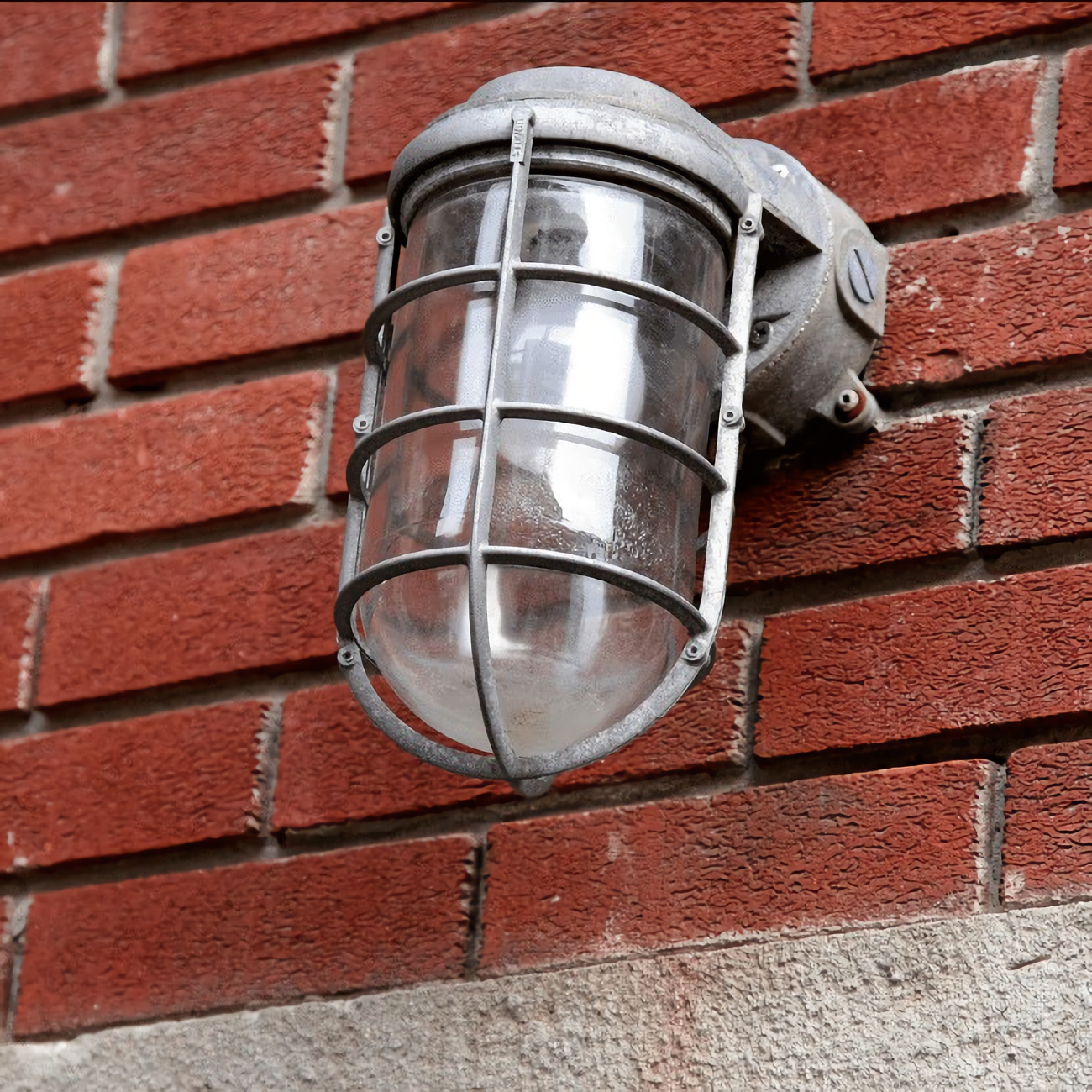
Vapor-proof lights come as a single sealed package that only needs to be plugged into a power source. This attribute reduces the design versatility of the lights but makes the lighting fixtures incredibly easy to install.
LED vapor-proof lights ship with mounting holes and brackets so you can directly mount them to a wall or ceiling. The only exposed part of a vapor-proof light is its wire connections. Installing a vapor-proof light is as easy as attaching the two electrical cables and mounting the fixture to a flat surface.
Things to Consider Before Buying Vapor Lights
Before you go off to buy your vapor-proof LED lights, we recommend taking a minute to consider a few essential factors.
Application
Your application will be the critical determining factor for your lighting fixture choice. Not all applications benefit from high-performance vapor-proof lights. Take a good look at your lighting system and determine the type of vapor light best suited to it.
Cost
Costs can quickly add up when you’re working with specialized equipment, and you can quickly end up over budget. Have a detailed outline of your lighting plan before you buy vapor-proof lights. Planning can help avoid a lot of future hassles and setbacks.
Mounting Options
Mounting options can be pretty limited in industrial applications, especially since you have tiny leeway in modifying the lighting area. The two most common types of mounting for vapor-proof lighting are mounting holes along the fixture design and external mounting brackets.
Why Buy Vapor Proof Lights from RC Lighting?
RC Lighting is a market leader in architectural LED lighting manufacturing. We offer several Vapor Proof Lighting, including our IP65 Outdoor Wall Lights, IP67 In-ground Lights, and IP68 Underwater Lights. We are committed to delivering light fixtures on time, under budget, and with an exceptional level of quality. All Our Products come with a standard 5-year warranty and ship in as little as 7-15 days. We also provide significant discounts to contractors, electricians, and other related industry professionals.
Conclusion
Vapor-proof lights are a specialized form of LED lighting that excels at industrial applications. The trick to selecting a good set of vapor-proof LED lights is to look at the IP rating of the product. The process of selecting a vapor-proof lighting fixture seems daunting at first. But once you understand the basics, the process becomes much more manageable.
The best way to navigate the complex world of lighting solutions is to rely on experts to guide you. RC lighting is a top LED light manufacturer and offers customers expert guidance. Contact us Now!
